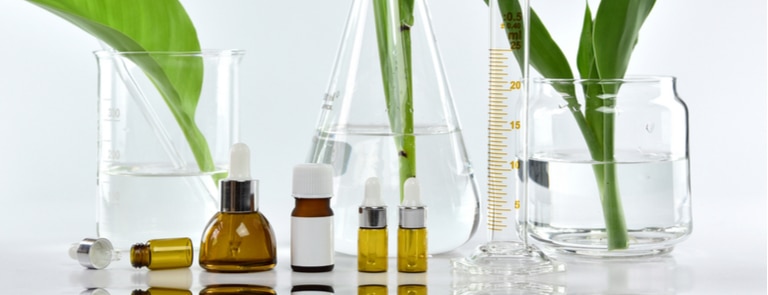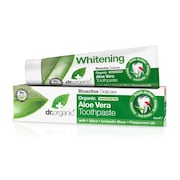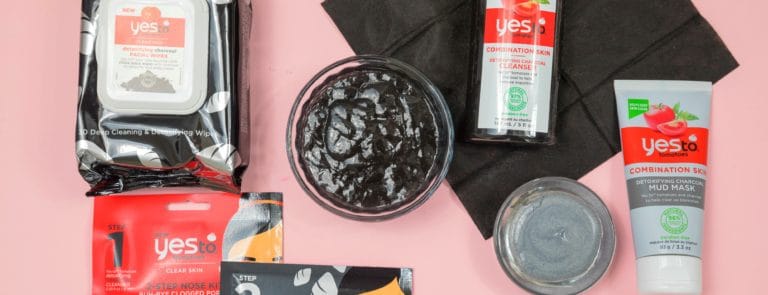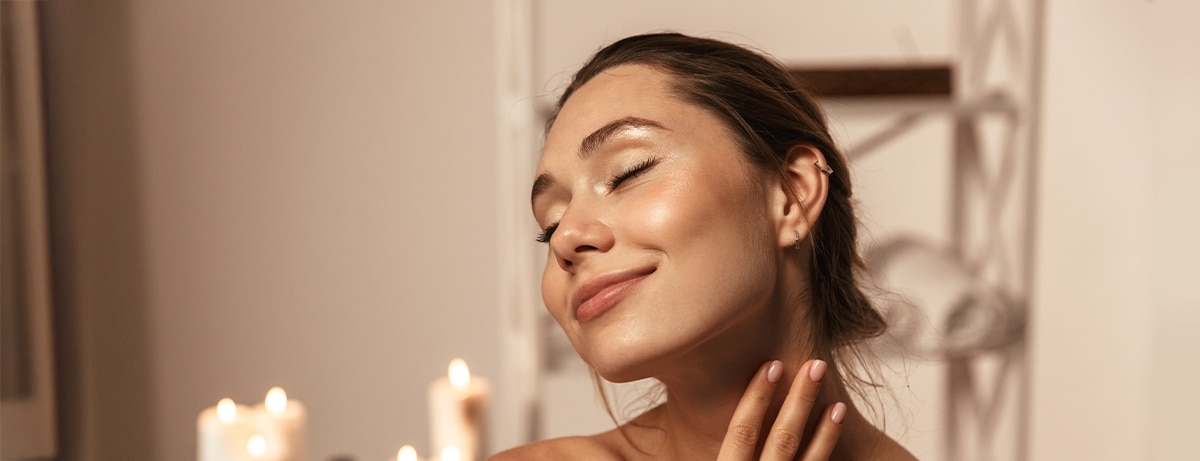15% off £25 or 20% off £35
Code:BASKET
What are parabens?

Parabens are synthetic chemicals that are used as preservatives in cosmetics like shampoo, conditioner, as well as food products. Find out more here.
Our top picks
Toothpaste

Dr Organic
Dr Organic Aloe Vera Toothpaste 100ml
3 for 2 Mix & Match
£5.99
Today, we’re more aware than ever about how important it is to look after our skin and make sure the products we use are free from harmful chemicals.
Parabens have been under the spotlight for nearly two decades as people question whether they pose a risk to our health or not.
But are parabens bad for you? We have got stuck into the research for you to find out whether you should keep or ditch the parabens in your products.
P.S. All of our products here at H&B are 100% paraben, microbead and SLS free, just in case!
Summary
The jury is out on whether parabens are bad for you – keep reading to find out more...
What are parabens?
Many of the skin care products available to buy contain parabens – so, it is likely you are being exposed to them daily.
They are a chemical compound of para-hydroxybenzoic acid and have been used for over eighty years as a preservative.
We need to use preservatives in most skincare and beauty products to keep them fresher for longer.
Many people use skin creams and lotions every day, dipping our fingers into them and allowing germs from our hands to get into the pots where they can easily multiply. Pair that with a high water content and warm bathroom storage and products would quickly turn bad if it wasn’t for preservatives.
You will usually find parabens in the following products:
- Shampoos
- Conditioners
- Deodorants
- Face moisturisers
- Body lotions
- Foundation
- Mascaras
- Toners
- Blush
- Grapefruit seed extract
- Salicylic acid
- Sorbic acid
- Benzyl alcohol
Summary
- Parabens appear in lots of everyday beauty products, glues, oils, soft drinks and more to preserve them and stop them from going mouldy
How are parabens made?
Parabens are extracted from para-hydroxybenzoic acid (PHBA) that occurs naturally in lots of fruits and vegetables, including1:
- Cherries
- Cucumbers
- Carrots
- Onions
- Blueberries
Man-made parabens used in cosmetics are identical to those found in nature – out bodies change them into natural PHBA and eliminates them in the same way.
Summary
- Parabens naturally occur in some plants and our bodies can make them from amino acids
- The parabens used in beauty products are often man-made, but you can find other natural preservatives in products like benzyl alcohol and salicylic acid
The use of parabens in skincare and cosmetic products
Parabens in cosmetics are in concentrations from around 0.3% to 1%. They are used to give items a longer shelf life.
Parabens and the environment
As the use of parabens is so widespread, and a lot of them end up getting flushed down our drains, it is inevitable that they will trickle into the environment.
In fact, studies have shown that parabens have been found in urban streams, river and even drinking water sources. But as there are natural sources of parabens found in fruits and vegetables like carrots and blueberries, is this a bad thing?
Since relatively little is known about the effect parabens can have when released into the environment, there is no evidence that they are harmful to the environment.
Summary
- Parabens have been found in the water system, but we don’t know if it is having a negative effect yet
Should we avoid parabens?
Independent expert scientific panels have conducted safety assessments on different members of the paraben family several times and confirmed their safety. Only the specific parabens which have undergone a rigorous safety assessment are allowed to be used in the UK and the reason why some parabens have not been authorised for use in the UK is simply because they have not been investigated.
Regulatory authorities from around the world have independently reviewed parabens in cosmetics and found them to be safe. Organisations such as Cancer Research UK, the NHS and the American Cancer Society all state that a link cannot be made between parabens and the claimed concerns.2
How are parabens displayed on labels?
To check if your favourite products contain parabens you should spend a couple of minutes reading the ingredient lists on their labels.
If you see the following on a product label, you will know that it contains parabens:
- Methylparaben
- Butylparaben
- Propylparaben
- Isoparaben
Whether you choose to buy skin care products that contain parabens is a call you alone have to make. In recent years there has been a growing demand for cosmetics and skincare that don’t contain these ingredients.
Holland & Barrett offers the largest range of products to ensure that there is sufficient variety in order to meet different consumers needs and demands
Summary
- Look out for parabens on products lists; they can also be displayed as: methylparaben, butylparaben, propylparaben and isoparaben
4 recommended alternatives that do not contain parabens
Here are some products that don’t use parabens in their formulation.
Toothpaste
Proof that you don’t need parabens to give your teeth a good clean!
This formula can help naturally whiten and soothe your teeth, whilst protecting your teeth from cavities.
Dr Organic toothpaste contains bioactive ingredients like:
- Silica
- Aloe vera
- Icelandic moss
- Peppermint oil
What our customers think:
Maxine09 – So truly refreshing & tasty – 5/5 stars
“I like this toothpaste - I was looking for a natural one which doesn't contain fluoride or harsh chemicals. It is too soon to see if it is actually whitening, but it tastes good and seems to do the job.”
Other synthetic ingredients to avoid
Microbeads
Microbeads have been a hot topic in the press with the ban of them in all toiletries for 2018 due to the concern of them entering our oceans and harming our delicate ecosystems. We banned them from all H&B products for this exact reason.
Handpicked content: What are microbeads?
SLS
Like parabens, SLS is also used in many cosmetic products, such as soaps, shampoos, detergents, toothpaste. SLS stands for sodium lauryl sulphate (SLS) and is a substance, like a detergent, which enables a liquid to foam.
Handpicked content: What is SLS?
The final say
- Parabens are found in many beauty / household products to help lengthen their shelf life
- Some people choose to avoid parabens
- There’s not much evidence that parabens are ‘bad’ but it’s up to you if you want to use them or not
- All natural beauty products here at H&B do not contain parabens












